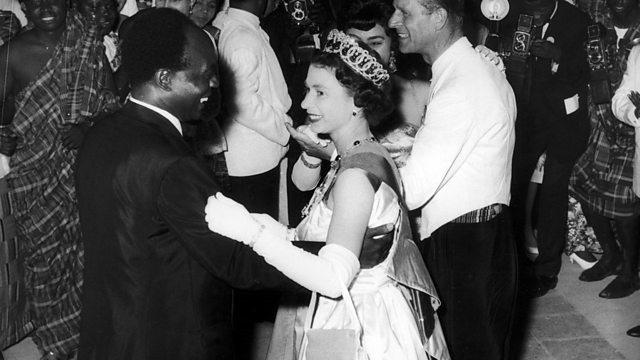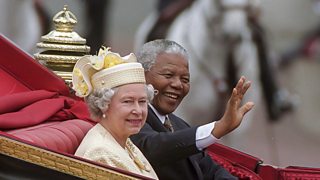Queen Elizabeth II: A royal diplomat on Ghana's stage
On a visit to Ghana in 1961, with post-imperial change in the air, Elizabeth II recognised how she and President Nkrumah could work together to keep Ghana in the Commonwealth.
After 70 years on the throne, Queen Elizabeth II is the world’s most high profile global figure and a unique exemplar of diplomacy and soft power who, in her 70 years on the throne, has had an extraordinary influence at the centre of world affairs. She came to the throne in 1952 at a time of crisis and as the British Empire disintegrated in the aftermath of World War Two.
The Queen’s role as constitutional monarch and head of the Commonwealth placed her at the heart of global crises, and she visited Ghana, Zambia and South Africa as a diplomatic envoy, helping to mediate in the racial politics of post-colonial Africa. For Britain to retain status as a world power, it had to show it accepted the changes that were sweeping away its former Empire.
In 1961, The Queen was in Ghana as an envoy of the British government which was trying to negotiate this new reality. She was also going as head of the Commonwealth of post-imperial nations - but with an uncertain future. Ghana's President Nkrumah was extremely direct in referencing the ‘winds of change’ but Elizabeth recognised how she and Nkrumah build a new relationship, inside the Commonwealth, at this crucial stage of Ghana's 'nation making'. Images of them dancing together at a state banquet played an important part in this.
Photo: Queen Elizabeth II of Great Britain dances with President Kwame Nkrumah of Ghana, 1961 Credit: Getty Images
Duration:
This clip is from
More clips from The Documentary
-
![]()
God Will Get The Glory Now
Duration: 02:31
-
![]()
Perry
Duration: 07:22
-
![]()
Old Black Man at the Grave of his Son
Duration: 04:00






